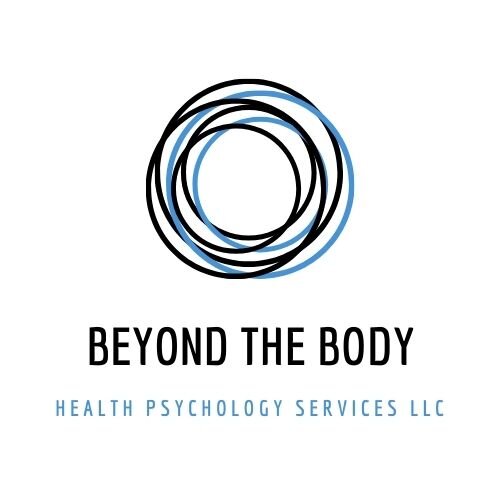
When Pain and Illness Impact Your Whole Life…You Need to Treat the Whole Person
-

Chronic Pain Therapy
As a health psychologist, Dr. Steiner likes to call pain psychology services or chronic pain therapy “pain-focused therapy”, because that’s exactly what it is- therapy that focuses on how chronic pain has impacted your life and ways to help you regain a sense of control again. All too often, chronic pain can start to interfere with all of the activities and personal values that make you feel like you. Pain can interfere with dreams, life plans, relationships…everything, and once pain starts running your life it can feel like you’ve lost control and are no longer living your best life. Instead, you are caught in a vicious never-ending cycle of feeling bad physically and emotionally. Pain-focused therapy can be one part of the puzzle to helping you feel in control again.
You may be thinking “how in the world is talking about my pain going to help with my pain?”. Chronic pain therapy or pain-focused therapy is not just talking about the pain or complaining. The therapy process is about honoring the ways in which your life has been impacted by the pain, and then using scientifically driven evidence-based strategies to help you:
1. Learn strategies to help manage the physical pain
2. Do more with less pain
3. Get back to the activities that give your life meaning
4. Improve your mood
5. Learn to communicate about pain so you get your needs met and improve your relationships
There are two different primary evidence-based types of therapy that are used to help you meet these goals: Cognitive Behavioral Therapy for Chronic Pain (CBT-CP) and Acceptance and Commitment Therapy (ACT). The specific type of therapy that is right for will depend on your personal experiences and goals for therapy.
-

Coping with Chronic Illness
Many chronic illnesses can require a lot of time and energy to manage; balancing medical appointments, medication changes, and worries about the future can all take their toll on your emotional and mental health. Just like with chronic pain, dealing with a chronic illness may mean that many aspects of the life you lived before the illness have been negatively impacted by your condition. You may feel like there was a “before” and “after” version of yourself. You may feel like managing your medical condition has become your full-time job or that it’s all consuming. Maybe you feel like you’re doing a decent job handling the emotional impact of your medical condition but you just can’t seem to make the lifestyle changes recommended by your doctor. If any of these experiences hit home for you, therapy with a health psychologist might help.
Therapy for Chronic Illness Management can help you:
1. Learn strategies to help you balance managing your condition with doing more of the things you enjoy
2. Get back to the activities that give your life meaning
3. Improve your mood and reduce anxiety about the future
4. Work toward accepting your medical diagnosis (if this is an important goal for you)
5. Implement lifestyle changes that have recommended by your medical providers to support your physical health; for example: working on weight loss or diet changes to for someone with diabetes or heart disease.
-

Insomnia & Disrupted Sleep
So many chronic medical conditions end up having a significant impact on sleep. Whether it’s the actual symptoms (such as with chronic pain conditions), the side-effects of certain medications, or just to worry and unpleasant thinking that can go hand-in-hand with living with a chronic illness- it can all lead to disrupted sleep.
Even if you are not dealing with a chronic medical condition, you may be experiencing symptoms of disrupted sleep or insomnia. In fact, many people experience primary insomnia, meaning that insomnia is their main problem and that it may not be related to pain or illness or medication at all. The stress of day-to-day life, erratic work schedules, and unhelpful sleep habits can all often have a negative impact on sleep.
You may notice that you are having difficulty falling asleep, or perhaps you are able to fall asleep quickly, but then you wake up multiple times in the night and cannot get back to sleep. If you are experiencing sleep disturbance, there are effective, evidence-based ways to deal with it, without medication. Cognitive-Behavioral Therapy for Insomnia (CBT-I) is the gold-standard approach for tackling insomnia, and I have been trained in this approach.
Whether sleep is your main concern or it is part of a larger struggle with pain or illness, CBT-I can be helpful in improving your sleep.
Get in touch.
Do you want to learn more about Beyond The Body Psych?
Fill out your information below and Dr. Steiner will be in touch soon!
